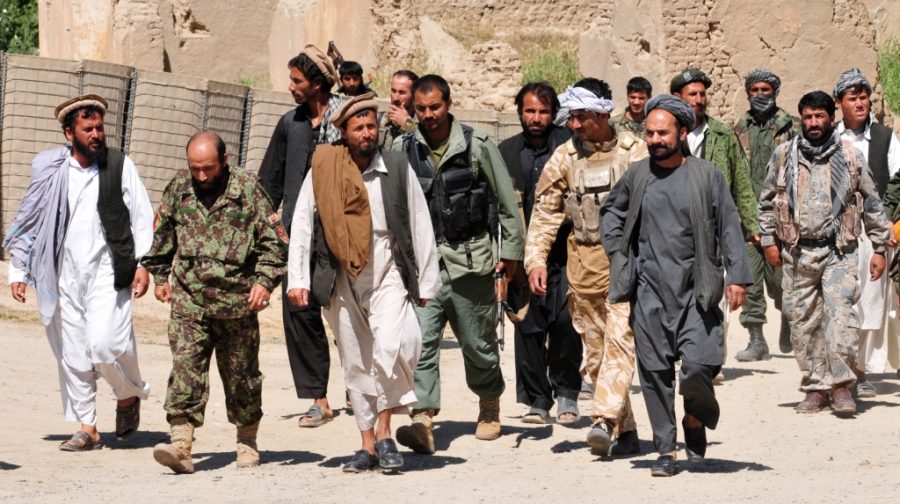Taliban Op-Ed disregards history by giving unnecessary platform to terrorists
The exact number of Taliban forces is unknown. The group’s aim is to impose its interpretation of Islamic law on Afghanistan and remove foreign influence from the country. The group’s aim is to impose its interpretation of Islamic law on Afghanistan and remove foreign influence from the country. The group’s aim is to impose its interpretation of Islamic law on Afghanistan and remove foreign influence from the country, according to CNN.
On Feb. 20, The New York Times published a groundbreaking Op-Ed article. The piece is headlined “What We, the Taliban, Want” and details exactly that, written by the fundamentalist military organization’s deputy leader, Sirajuddin Haqqani. But giving such a person (considered a “specially designated global terrorist” by the FBI) is, at best, a risky move. At worst, it is an act of dangerous betrayal and a display of terrorist sympathy by one of the nation’s most-read media outlets.
In the article, Haqqani writes, “I am convinced that the killing and maiming must stop. That we today stand at the threshold of a peace agreement with the United States [which has subsequently been reached] is no small milestone.”
Inevitably, The New York Times faced significant backlash for publishing the opinion of a leading figure within the ranks of the adversary of the United States’ longest war. In truth, describing Haqqani merely as the Taliban’s “deputy leader” is negligent. It fails to contextualize his worldwide presence or to mention that the FBI is offering up to $5 million for information leading directly to his arrest. What’s more, this title — along with the article itself, a one-sided opinion piece with Haqqani as the mouthpiece for contemporary Taliban views — doesn’t provide readers with necessary historical context.
Haqqani was allegedly involved in the planning of the assassination attempt on the life of Afghan President Hamid Karzai in 2008, along with an attack on a hotel in Kabul earlier the same year that killed six people, including an American citizen. Haqqani’s men have conducted multiple kidnappings of American citizens in the Middle East, including a New York Times reporter, and he has long been “actively involved in the planning and execution of attacks” that targeted U.S. troops.
It makes no sense to give an enemy of this proportion a platform. As Sediq Sediqqi, an Afghan government spokesman, told Reuters, “It is sad that the [New York Times] has given their platform to an individual who is on a designated terrorist list. He and his network are behind ruthless attacks against Afghans and foreigners.”
The Times’ editors must have known that this would stir up immense anger as a topic that the American public tends to have strong opinions about. Surely, they do not want to hear the opinions of a global terrorist, whether he feels that “we were forced to defend ourselves” against U.S. advances or not?
On Feb. 29, a deal was struck between the Taliban and the U.S. for the former to withdraw troops from Afghanistan, seemingly an action that both parties favor. However, we shouldn’t need to know what the Taliban are thinking. It leaves you feeling uneasy and connects the American public with a sense of terror.
Ultimately, The New York Times’ decision to run this article is bordering on nonsensical. It completely disregards the brutal historic implications of Haqqani and the Taliban’s presence within the Middle East. Radical ideologies such as these should not be given the defense of falling under the “opinion” category. There has to be a line, and to publish the views of a wanted terrorist seems a blatant, improper leap right over it.

Hi! I am George Murray, one of the Sports Editors at Hilltop Views. I am an english literature major and journalism & digital media minor graduating...












